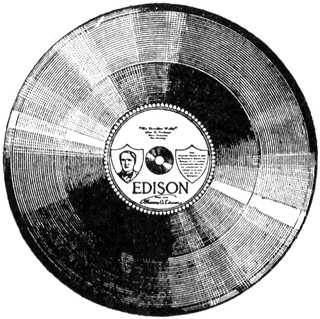
Recording Performance / Recording as Performance
In the twelve years since its inception, PennSound has grown to include more than 25,000 recordings. Given that breadth, any attempt to briefly summarize the archive’s complexity is bound to come up short. Having been part of the PennSound team for much of its existence, I’m well aware that my own development as a poet, scholar, teacher, and archivist has been greatly influenced by the site’s evolution, and therefore, my selections are very personal ones that nonetheless (I hope) provide some sense of the archive’s identity.
Like many of PennSound’s listeners, my experience of our authors has often been vicarious — there are several poets here whose work I encountered in audio form long before doing so on the printed page — and my choice of Claudia Rankine aptly reflects that. I was deeply moved by her latest book, Citizen: An American Lyric, and had no opportunities to see her read in person, but was able to hear her take on the work (including all sorts of illuminating paratextual asides not present in the book) through a recorded reading at Temple University last spring.
I’ve also chosen a pair of poets whose masterful live performances had a profound and visceral effect on me that remains when revisiting their work in recorded form: Jerome Rothenberg and Cecilia Vicuña. Here, Rothenberg offers up both a “total translation” and a fully-embodied rendition of a Navajo sacred song, while Vicuña’s all-encompassing performance style slips effortlessly from the mundanities common at the start of a reading (thanking the hosts, adjusting the placement of the microphone) into a enchanting and fiery political piece.
While it’s easy to be drawn in by skillful use of the human voice’s full expressive range, forgetting that our experience of a recorded performance is always a mediated one, I’m just as interested in poetry that revels in that process, producing aural works that achieve unique effects not possible on the printed page. We see this in Caroline Bergvall’s revivification of a transcription of a Roberta Flack soul classic in the live setting or Hannah Weiner’s rollicking multi-vocal performance of her typographically-dense clairvoyant texts. Moreover, we can trace the evolving influence of technology upon sono-poetic compositions from the use of multi-track recording (in the case of Jackson Mac Low and John Ashbery’s pieces) to processing via the Moog synthesizer (John Giorno’s “Give it to Me Baby”) and David Grubbs’ laptop manipulation (via Max/MSP software) of Susan Howe’s voice in “Thorow.” These interventions permit the documentation of one iteration of a piece open to interpretive choices, and just as often facilitate the performance of an otherwise difficult-to-perform text.
For my final selection, I chose a favorite poem from Paul Blackburn, a poet I grew to love as I worked closely with the two recordings present in our archives. Blackburn is a patron saint to audio archivists like myself — long before we brought our sleek digital recorders to readings he was lugging a heavy reel-to-reel deck around New York’s Lower East Side documenting its thriving poetry scene — but this recording also reflects an important facet of PennSound’s ethos. Overwhelmed by tape hiss, obtrusive, deep bumps from Blackburn hitting the mic stand, and an annoying mechanical whine (ostensibly caused by a poorly-maintained tape deck) that competes with the poet’s voice, this isn’t the sort of pristine studio recording one would find in most poetry archives. We value it not just for its historic and nostalgic significance — recordings of Blackburn are scarce and this one was made less than five months before the poet’s death — but also precisely because it serves as a reminder of the presence of the recording medium, something easy to overlook as we near a totalizing and sterile digital silence. It’s the product not just of a human being, but also a specific room, microphone, cable, recorder, tape stock, power supply, etc. At first I strove to appreciate the poem in spite of the many distractions; in time, I grew to love the noise as much as the poem itself.
John Ashbery, “Litany” Part 1 (excerpt)
studio recording with Ann Lauterbach, 1980 (9:31): MP3*
Caroline Bergvall, “Roberta Flack can clean your soul — out!”
from a Segue Series Reading at the Bowery Poetry Club, February 12, 2011 3:52): MP3
from a reading at SUNY-Cortland, April 1, 1971 (2:37): MP3
from Tape Poems, edited by Eduardo Costa and John Perreault, released on reel-to-reel tape, 1969 (5:41): MP3
from Thiefth, released as a Blue Chopsticks CD, 2005 (15:00): MP3*
Jackson Mac Low, “The 8-Voice ‘Black Tarantula Crossword Gatha’” (excerpt)
realized at NYU Composers’ Workshop, November 25, 1973; released as an S Press cassette, 1975 (13:30): MP3*
Claudia Rankine, Citizen: An American Lyric (excerpts)
from a reading at Temple University, Philadelphia, March 19, 2015 (10:32): MP3*
Jerome Rothenberg, “The 13th Horse Song of Frank Mitchell”
total translation from the Navajo, assisted by David P. McAllester, from Rockdrill 6: Sightings, Jerome Rothenberg: Poems 1960-1983, 2004 (4:53): MP3
from a Segue Series Reading at , March 28, 2009 (8:56): MP3
Hannah Weiner, “May from the Journal in June” (excerpt)
performance with Sharon Mattlin and Rochelle Kraut at the St. Mark’s Poetry Project c. 1978, produced by Charlie Morrow and released as a New Wilderness Audiographics cassette (6:12): MP3*
* edit or remix unique to this playlist
These recordings are available for noncommercial and educational use only. All rights
to this recorded material belong to the respective authors. © 2015 the respective authors. Recordings used
with permission. Essay © 2015 Michael S. Hennessey. Distributed by
PennSound.
|

